This article was medically reviewed by Erik Kramer, DO, MPH. Dr. Erik Kramer is a Board-Certified Primary Care Physician at the University of Colorado. With over 15 years of experience, his clinical interests include obesity and weight management, diabetes care, and preventive care, as well as embracing a holistic approach to primary care. He received his Doctorate in Osteopathic Medicine (D.O.) from the Touro University Nevada College of Osteopathic Medicine and completed his residency at Central Maine Medical Center. Dr. Kramer is a Diplomate of the American Board of Obesity Medicine.
This article has been viewed 25,735 times.
There are two kinds of foods that help balance your gut: prebiotics and probiotics. You can get both through a healthy diet. However, if you're still having digestive trouble, you might want to consider adding a supplement. Keep in mind that everyone's gut will react differently to different kinds of foods. Instead of trying to stick to strict rules, find a diet that works well for you and makes your gut feel good.
Steps
Eating Gut-Friendly Foods
-
1Opt for a mostly plant-based diet. Animal products can irritate the gut and kill good bacteria. On the other hand, plant-based foods act like fertilizer for good bacteria and create a healthy environment for good bacteria to grow in. You don't need to be a vegetarian or vegan to increase good bacteria, but adding more fruits, vegetables, and legumes to your diet can help.[1]
- Plant-based foods include fruits, vegetables, nuts, whole grains, and legumes.
-
2Include plenty of prebiotic foods in your daily diet. Prebiotic foods promote the growth of good bacteria in your gut. Eating prebiotic foods is essential to maintaining a balance between good and bad bacteria. Try to include a prebiotic food into every meal.[2]
- Some of the best prebiotic foods include oats, asparagus, dandelion greens, leeks, garlic, bananas, onions, apples, flaxseed, and cocoa.
Advertisement -
3Eat 25-30 g of fiber every day. Fiber feeds healthy bacteria and promotes good digestion. Get a mix of soluble and insoluble fibers. Soluble fiber helps produce stool and could lower cholesterol. Insoluble fiber helps move food through the intestines.[3]
- Some good sources of soluble fibers include: fruits like apples, oranges, and grapefruit; vegetables; legumes like lentils, dry beans, and peas; barley; oats; and oat bran.
- Some good sources of insoluble fiber include: fruits with edible peels or seeds; whole-wheat bread, pasta, and crackers; bulgur wheat; corn meal; cereal; bran; rolled oats; buckwheat; and brown rice.
-
4Add more fermented foods to your diet. Naturally fermented foods are one of the best natural sources for probiotics, and they help introduce good bacteria into your gut. There are no guidelines for how much fermented food you should eat to see the benefits, so add in as much fermented food to your diet as you can.[4]
- Good sources of fermented foods include sauerkraut, kombucha, miso, tempeh, pickled vegetables, yogurt with live cultures, and kefir.
- There is some debate about whether or not the live cultures survive all the way to your gut, but people who eat fermented foods usually report fewer digestion issues.
-
5Limit how much red meat, dairy, and saturated and trans fats you eat. Red meat and high-fat dairy products can slow down the growth of good bacteria in your gut. Fried foods can also promote the growth of bad bacteria.[5]
- Lean meats, like skinless chicken or turkey, as well as fish and shellfish are good alternatives for red meat.
- Choose olive oil over butter or margarine.
Using Medicine
-
1Try taking a daily probiotic supplement. Probiotics may help some people digest better, and add good bacteria to the gut. However, you have to take them consistently every day in order to keep good bacteria alive and functioning. Look for probiotics that include lactobacillus acidophilus if you have trouble digesting dairy, bifidobacterium bifidum if you have IBS, lactobacillus rhamnosus to guard against traveller's diarrhea, and bifidobacterium longum if you struggle with constipation.[6]
- Follow the dosing instructions that come with your specific probiotics.
- Some people feel better when they take probiotics while others don't notice a difference. Give it a few weeks after you start taking probiotics and if you don't notice a change, it's probably not worth it.
Tip: Probiotics that are sold in the refrigerated section typically contain more preserved cultures and a higher population. It's easier for the probiotics to survive when they're kept cool versus when they're stored on a shelf.
-
2Consider a fecal transplant for stubborn gut infections. A fecal transplant is a relatively new procedure for people who suffer from C. difficile colitis. If you suffer from diarrhea, stomach aches, or bloody stools that last for 2 or more days, this could be a sign of C. difficile colitis. During a fecal transplant, a doctor will use a colonoscopy to introduce donor stool into your colon. You will be sedated for the procedure. A fecal transplant is usually only considered in stubborn or recurring cases.[7]
- A fecal transplant is considered after a round of antibiotics.
-
3Avoid antibiotics unless they are absolutely necessary. Antibiotics kill good bacteria as well as bad bacteria. Of course, you should take antibiotics if you really need to, but talk to your doctor about if you have other options.[8]
- Antibiotics are used in animal agriculture, so there is a possibility that eating more animal products can put more antibiotics into your digestive system and kill good bacteria.
References
- ↑ https://www.hsph.harvard.edu/nutritionsource/microbiome/
- ↑ https://www.umassmed.edu/nutrition/blog/blog-posts/2019/5/the-10-best-prebiotic-foods-for-ibd/
- ↑ https://www.ucsfhealth.org/education/increasing_fiber_intake/
- ↑ https://www.health.harvard.edu/staying-healthy/can-gut-bacteria-improve-your-health
- ↑ https://www.pcrm.org/health-topics/gut-bacteria
- ↑ https://www.health.harvard.edu/staying-healthy/can-gut-bacteria-improve-your-health
- ↑ https://www.health.harvard.edu/staying-healthy/can-gut-bacteria-improve-your-health
- ↑ https://www.pcrm.org/health-topics/gut-bacteria
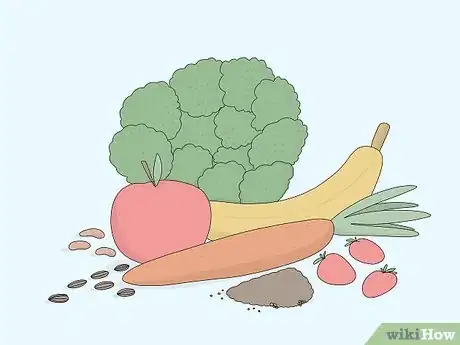

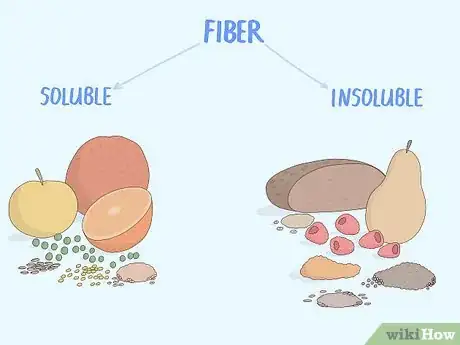
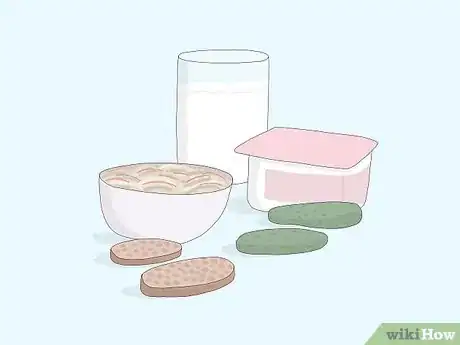

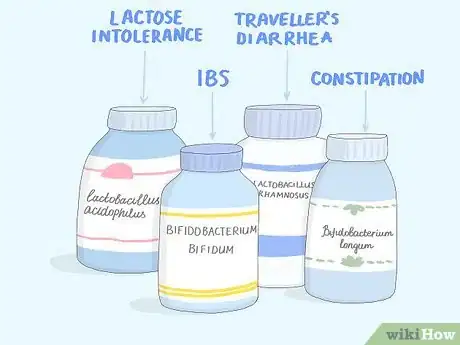
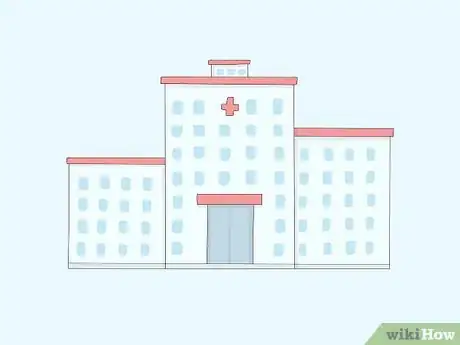















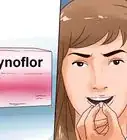




































Medical Disclaimer
The content of this article is not intended to be a substitute for professional medical advice, examination, diagnosis, or treatment. You should always contact your doctor or other qualified healthcare professional before starting, changing, or stopping any kind of health treatment.
Read More...